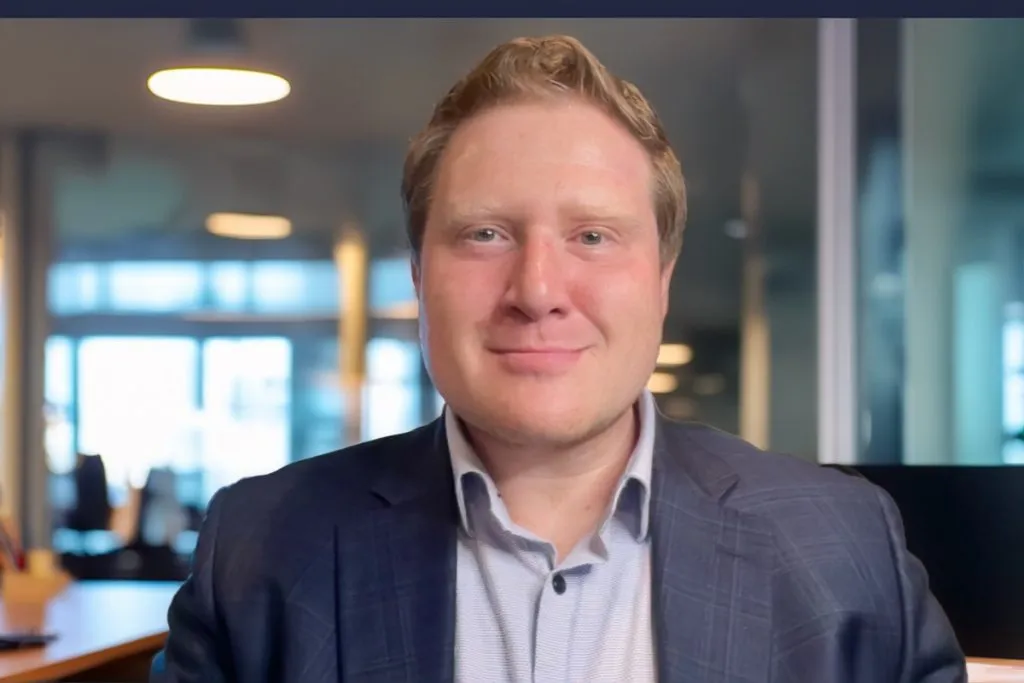
OpenPlay cofounder and Chief Client Officer Edward Ginis.
Is it time for the music industry to radically reconsider its approach to AI? Edward Ginis, cofounder and Chief Client Officer of OpenPlay, is already focused on monetizing AI instead of fighting it. An ardent activist for modernizing the industry’s data infrastructure, Ginis launched OpenPlay in 2013 after serving as CTO at Concord Music Group and views AI as an opportunity to evolve rather than a threat to resist.
With over 15 years of experience in music, technology, and finance specifically, Ginis has serious chops in building large-scale software systems and data management solutions for the music industry.
At OpenPlay, Ginis’ focus is on building independent and flexible data hubs for artists and IP owners — instead of limiting, isolated silos. At DMN, we’re excited to partner with OpenPlay to further broaden that mission.
In this interview, we asked Edward to share his vision on how the music industry can improve its metadata management and monetize AI, and what he’s doing to bring that vision to reality.
Digital Music News: Edward, thanks so much for joining us. We’re really keen to dive into what’s happening with OpenPlay and your vision for upgrading and changing the music industry’s data infrastructure and approach to metadata.
Let’s start with the AI landscape. What’s your take on the AI battle right now?
Edward: Paul, it’s great to be here. The “AI battle,” as it’s perceived, is fundamentally about monetization. It’s not really about stopping the technology or purely about preserving artistry; it’s about figuring out how to monetize something that the industry doesn’t quite know how to monetize yet. We’ve seen this pattern before with other technological disruptions. For example, YouTube was initially viewed as a threat to the industry until Content ID was developed, allowing rights holders to identify and monetize their content on the platform. Now, Content ID has transformed from a defensive tool into a significant revenue stream that most rights holders embrace.
Digital Music News: Alright, so let’s monetize this AI beast. But how can this industry do that?
Edward: The biggest challenge is attribution. Who gets paid when a piece of AI-generated content draws from thousands of existing works? Very few companies are tackling this.
There’s a need to solve the problem of where the generation comes from. We need to control the input into LLMs by protecting and fingerprinting catalogs before they’re ingested. If we can trace a generated work back to its source, we can accurately distribute fractional royalties, even to creators whose works haven’t seen much revenue in a long time.
Digital Music News: So that’s a good segue into OpenPlay. You created OpenPlay because you saw huge issues with how the music industry handles data. It’s a mess out there, but what are the biggest problems you’re trying to solve?
Edward: The biggest problems in the music industry today revolve around data fragmentation and the lack of control. Content owners often have limited options, relying on distributors or publishing administrators who essentially become gatekeepers to their own intellectual property. When these deals end, retrieving their content and associated data can become a nightmare. At OpenPlay, we abstract all that complexity. Rights holders can maintain control of their assets while still delivering content directly to their distributors, societies, or DSPs via our platform.
Digital Music News: Can you explain how that would change the life of a typical artist or IP owner?
Edward: Absolutely. Whether a rights holder is working with FUGA in Latin America, Spotify directly in the US, or AudioSalad in Europe, OpenPlay acts as a central hub. They can set up all those connections from one place without worrying about getting their content back if relationships change. It’s about giving rights holders leverage. If they’re unhappy with a deal, they should be able to switch within 24 hours, not face a mountain of complications.
Digital Music News: And you’re also expanding beyond distribution?
Edward: Yes, we’re expanding into UGC, royalty processing, video generation, and even providing advanced revenue. We see a future where these services operate more like an app store or HubSpot, where labels and publishers can choose and pay only for what they need.
For instance, companies like AudioShake, which offer stem dissociation and lyric translations, can be seamlessly connected through OpenPlay. It simplifies how content and metadata are exchanged, so the focus can be on the commercial value, not technical headaches.
Digital Music News: Perhaps there’s too much power concentrated in distribution hubs.
Edward: Precisely. Distribution as a revenue source is eroding. We need a marketplace where parties pay for what they need, and OpenPlay facilitates those connections. We’re creating an environment where new players have immediate access to the tools they need and can easily try new technologies. Music is notoriously unfriendly to entrepreneurs, and we want to change that.
Digital Music News: So, speaking of changing things, is there anything stopping a major artist or label from mirroring their content onto OpenPlay, even if they have a major distributor?
Edward: No, not at all. In fact, a big part of our business is helping them do exactly that. We’re not telling them to leave their distributors. We’re saying, bring your content into OpenPlay. Moving forward, they enter their content with us, and we deliver it to their existing distributor. They’ll have one entry point, reducing errors and simplifying their workflow. This also gives them the option to switch distributors easily if needed.
Digital Music News: It seems crazy: why is it so hard to wrestle control over your own IP?
Edward: Rights holders are entitled to all the data related to their IP, including stream data. Distributors often make it technically difficult to get this data, citing issues like file sizes or complexity, but in the end, it isn’t their data. Sidestepping this mess, OpenPlay combines publishing and label data into one ecosystem, offering a full view of the copyright assets and facilitating accurate data delivery to the MLC and others. This helps prevent data “black boxes.”
Digital Music News: You’re building a separate data storage and application hub, which sounds like a refreshing progression. Is it too far-fetched to then reconsider a global resource database?
Edward: Well, to work effectively, it needs to be highly decentralized. Trying to build ‘one silo to rule them all’ is impossible and impractical. What we need instead are interconnected systems with standardized interfaces – what technologists call APIs – that allow data to flow freely between different platforms while respecting ownership.
Think of how Plaid works in the financial industry, connecting your bank to services like Venmo without requiring these companies to directly communicate. Your bank doesn’t need a relationship with Venmo for you to move money between them. This level of interoperability is essential for the music industry to move forward.
Digital Music News: Swinging back to the AI discussion – and next steps – is it too late to identify works already ingested into LLMs?
Edward: No, I don’t think so. We’ve seen the early stages of systems like Suno and Udio, but many more are coming. The most successful ones will start with authorized content, working directly with rights holders and ingesting properly fingerprinted material.There’s also a huge need for AI detection technologies – tools that can analyze music and determine what percentage was AI-generated versus human-created. These detection systems would use pattern recognition and other techniques to identify AI signatures in the music.
Ultimately, DSPs like Spotify and Apple Music will be the arbiters of what gets in and stays out, likely implementing their own detection systems alongside content policies.
Digital Music News: Edward, I think we’ve found our fearless metadata and AI monetization leader. Thanks for outlining your vision here.
Edward: Thank you, Paul. The technology is inevitable, so our focus needs to be on creating systems that benefit artists and rights holders in this new landscape.


Leave a Reply
You must be logged in to post a comment.